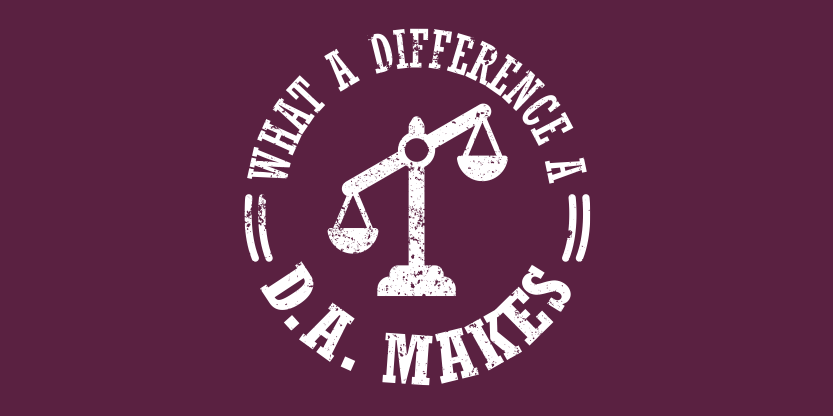This piece was originally published on the What a Difference a DA Makes campaign website. View it here.
Suffering from addiction is not a crime. Yet, the Boston Globe recently reported that “a high percentage of people suffering from addiction end up incarcerated, and about two thirds of [people who are incarcerated] have a substance use disorder.”
First and foremost, addiction is a public health issue that requires health-based treatment, not punishment. But too many people spend time in jail instead of spending time in treatment.
Often, this is because district attorneys contribute to the criminalization of addiction under the false promise of public safety. When the police arrest someone and charge them with a crime, district attorneys drive the next steps: they can choose to prosecute the case, divert the accused to a program or drug treatment, or dismiss the case altogether. Helping people overcome substance use disorders creates safer communities. Punishing them in cages without treatment only makes things worse.
The evidence is clear: the criminal legal system is not only a harmful way to address substance abuse, but an ineffective one, too. When district attorneys choose incarceration over treatment, they hurt individuals, families, and communities. Incarceration often forces withdrawal, which can be dangerous or deadly. Recent research from the Massachusetts Department of Health shows that compared to the rest of the adult population, the opioid-related overdose death rate is 120 times higher for people released from Massachusetts prisons and jails. Moreover, having a criminal record can prevent people from finding work, applying for housing, and getting loans.
We can’t undo the war on drugs, but we can elect district attorneys who believe the solution to drug addiction is treatment, not incarceration.
Prosecutors who support reforms – like repealing mandatory minimum sentences for drug offenses, increasing opportunities for diversion to treatment, and not prosecuting simple drug possession cases – can be a powerful force for making long-overdue changes to laws that would reduce mass incarceration and racial disparities.
Last month, at a first-of-its-kind candidates forum at the South Bay House of Correction, the six candidates running for Suffolk County District Attorney were asked questions by people most directly impacted by the policies and decisions made by the Suffolk County District Attorney’s Office. Among the questions asked: “What is your plan to deal with the opioid epidemic? Do you feel diversion programs are the way out, or do you feel you can punish addicts out of it?”
All of the candidates agreed district attorneys should not punish people for addiction.
Candidates for district attorney – and sitting district attorneys – are accountable only to the voters.
We must continue asking candidates questions on where they stand on issues like the criminalization of addiction, and we must demand elected district attorneys commit to using their power responsibly, fairly, and justly. For three-in-five Massachusetts voters, that means prioritizing treatment over incarceration.
This summer, in advance of the primary election on September 4, we will be canvassing communities and neighborhoods across Massachusetts, educating the public, and discussing the need to support candidates who will do right by the people. To get involved, sign up to volunteer.
Want to learn more about where the candidates stand on this issue? Find out at DAdifference.org.
Written by Rahsaan Hall, director of the Racial Justice Program at the ACLU of Massachusetts and campaign manager for the What a Difference a DA Makes campaign.
Date
Monday, July 30, 2018 - 2:45pmFeatured image

